Board of Rectors of Vietnam National University of Forestry
12 tháng 10, 2017| President: Prof. Dr. Pham Van Dien | |
|
| - In charge of the overall work of the university. + Develop, organize the implementation of the development strategy and planning of the University; + To develop the organizational and operational mechanism of the University; the formulation of internal regulations and regulations; directing the work of digital transformation in the whole University; + Organization and staff work; emulation, commendation, discipline and evaluation of officials, public employees and employees; + Planning work; invest; finance; - Perform other tasks assigned by the leaders of the Ministries. |
| Vice-President: Assoc. Prof. Dr. Bui The Doi | |
|
| - In charge of internal affairs; protect internal politics; general Administration; national security, social order and safety, medical work; occupational safety and health, fire and explosion prevention and control; - Management of public property; sanitation, landscape and environment; - Manage the university's service activities; - In charge of legal work, inspection and examination; Journal of Forestry Science and Technology; University portal, Website and internal information of the University; – In charge of the University of Forestry Branch in Gia Lai province; – In charge of the Projects of the University of Forestry Branch in Gia Lai province; Forest Plantation, Protection and Development Project at Forestry University (Hanoi and Gia Lai campuses); - To perform other duties assigned by the President. |
| Vice-President: Assoc. Prof. Dr. Phung Van Khoa | |
|
| – In charge of scientific and technological activities: scientific research and technological development; Technology transfer consultant; – In charge of scientific and technological programs, projects, schemes and contracts (domestic and international); - In charge of startup programs, projects and activities; - In charge of international cooperation activities; expert management, international learners; – Participating in charge of the University of Forestry Branch in Dong Nai province; – Participating in charge of Forestry High School in Dong Nai province; - To perform other duties assigned by the President. |
| Vice-President: Assoc. Prof. Dr. Pham Minh Toai | |
|
| – In charge of enrollment and training at all levels: high school, university, and graduate school throughout the University; training programs, training activities; – In charge of training programs, projects, schemes and contracts of VNUF at Hanoi campus; reviewing and renewing training program objectives, building laboratories and experimental centers of faculties and training institutes; - In charge of testing, ensuring university quality; - In charge of information technology in training; – In charge of mass organizations (Youth Union, Student Union, Red Cross); cooperate with the Trade Union of the University; - In charge of student affairs; emulation, commendation and discipline of pupils and students; in charge of literary work; – Participating in charge of Forestry High School (in Hanoi); - To perform other duties assigned by the President. |
Center of Biodiversity and Sustainable Forest Management
20 tháng 12, 2017|
| Dr. VUONG DUY HUNG, 1978 - Position: Director of Center - Expertise: Forest plants, Rare Forest Plants. - Email: duyhungfuv@gmail.com - CV |
| | Msc. NGUYEN THI THU, 1983 - Position: Vice-Director of Center - Expertise: Environment, Climate Change, Biodiversity Conservation - Email: thu.nguyen.2k14@gmail.com - CV |
|
| Msc. NGUYEN THI TUYET MAI, 1967 - Position: Vice-Director of Center - Expertise: Pratical Instructor in Wildlife, Wildlife Management, Biological Resources. - Email: maiqltnr@yahoo.com.vn - CV |
| Msc. PHAN DUC LINH, 1972 - Position: Technical staff - Expertise: Pratical Instructor in Wildlife, Forest Resource Management - Email: phanduclinhch@yahoo.com - CV | |
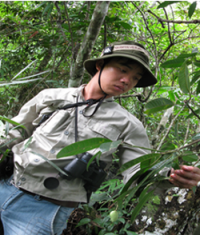 | Msc. NGUYEN HUU CUONG, 1982 - Position: Technical staff, PhD in Russia - Expertise: Pratical Instructor in Plant Resource Management, Plant Classification and Conservation - Email: huucuongn@yahoo.com - CV |
| Msc. PHAN VAN DUNG, 1982 - Position: Technical staff, PhD in Russia - Expertise: Plant specimens Collection, Construction of Plant Data - Email: phandungfuv@gmail.com - CV | |
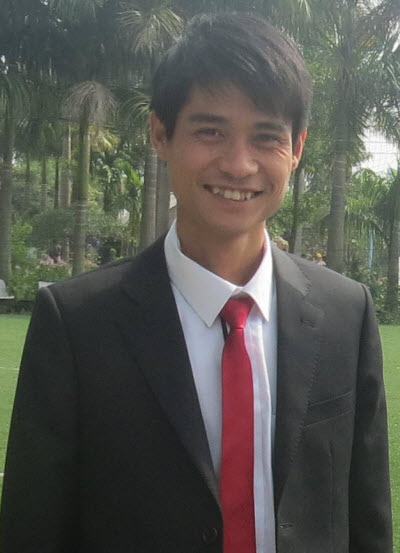 | Msc. BUI DINH DUC, 1986 - Position: Technical staff, PhD in Russia - Expertise: Pratical Instructor - Email: ducbvtv1986@gmail.com - CV |
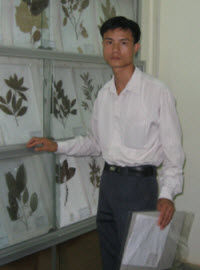 | B.S . NGUYEN VAN LY, 1980 - Position: Researcher - Expertise: Plant specimens Collection, Construction of Plant Data - Email: thienlyddsh@yahoo.com - CV |
|
| B.S. TRINH VAN THANH, 1988 - Position: Researcher - Email: thanhvfu1234@gmail.com - CV |
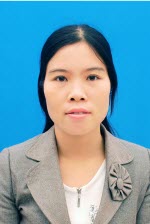 | Technician TRAN THI TU DUOC, 1983 - Position: Technician - Expertise: Pratical Preparation in Forest Plants - Email: trantuduocvfu@gmail.com - CV |
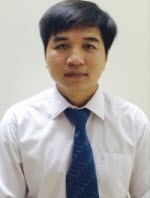 | Bsc. BUI XUAN TRUONG - Position: Technical staff - Expertise: Pratical Instructor in Entomology, Use of insects and useful microorganisms, Biological Resources - Email: truongfuv88@gmail.com - CV |
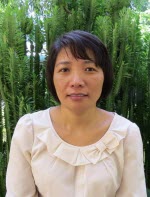 | Msc. BUI MAI HUONG, 1973 - Position: Technical staff - Expertise: Plant Diseases, Use of insects and beneficial Microorganisms, Environmental Microorganisms, Insect pests of urban Plants, Integrated pest Management. - Email: binhhuongkt@gmail.com - CV |
International research projects
12 tháng 10, 2017| No | Programs/Projects | Time period | Agency |
| 1 | The CLIDEV | 2020-2024 | The Ministry for Foreign affairs of Filand |
| 2 | 2021-2024 | ||
| 3 | 2017-2021 | ||
| 4 | the student-mobility program within the program "Transformation for a Sustainable Future in South-East-Asia (TranSEA)" | 2021-2022 | Erasmus+ Program of the European Commission |
| 5 | ASA program | 2021 | the Federal Ministry for Economic Cooperation and Development (BMZ) |
| 6 | the student-mobility program within the program with Sopron University, Hungary | 2020 | Erasmus+ Program of the European Commission |
| 7 | The GO INTERNATIONAL PLUS 2019 program, "Erasmus+ Key Action 107 (Mobility with Partner Countries)" | 2016-2020 | |
| 8 | The research project on developing camellia sp. in Mekong river basin countries | 2019 | GRFI |
| 9 | Study on Effects of Local People on Biodiversity in Quang Nam and Thua Thien Hue | 2017-2018 | |
| 10 | Scientific research program for lecturers (for 7 lecturers of VNUF) | 2017-2020 | |
| 11 | Developing international masters program of forestry for the countries of the Mekong sub-region | 2015- 2018 | |
| 12 | Conservation and sustainable use of biodiversity and forest ecosystem services in Vietnam | 2016 | |
| 13 | Developing curricula on climate change for undergraduate and graduate disciplines | 2016- 2017 | |
| 14 | Integrate knowledge of REDD + into the Master's program at VNUF | 2016- 2017 | |
| 15 | Research and application of technology for sustainable production of agarwood in Vietnam | 2016 | MOST And Julich Research Institute |
| 16 | Development of forestry training programs in English | 2016 | |
| 17 | Provincial REDD + Action Plan in Quang Binh Province | 2015- 2016 | |
| 18 | Truong Son Mountain range: An Evolutionary Barrier of Reptiles? Study in limestone forest at Hin Nam No National Biodiversity Reserve, Laos | 2015 | |
| 19 | Develop a provincial REDD + action plan in Ha Tinh province | 2015 | |
| 20 | Structuring and rehabilitating secondary forests to provide biodiversity and timber in the Central Highlands, Vietnam | 2015 | |
| 21 | Establish a nature conservation training center for ethnic minority students at VNUF | 2014- 2017 | |
| 22 | Current status of red tree species list of measures in Ta Xua nature conservation in Northwest Vietnam | 2014- 2015 | |
| 23 | Conservation of biodiversity in Pa Phanh area, Thanh Hoa | 2014- 2015 | |
| 24 | Community-based carbon calculation | 2014 | IGES |
| 25 | A hands-on learning model for calculating carbon stocks of community forests in Vietnam funded by the Asia Pacific Network for Global Change Studies - TBD 2014 | 2014 | |
| 26 | Discovering biodiversity of limestone reptiles at Hin Nam No National Biodiversity Reserve, Laos | 2014 | |
| 27 | Current status and conservation of Pavo muticus in Bu Gia Map National Park, Vietnam | 2013 | |
| 28 | Conservation of rare and precious plants in Dong Van - Ha Giang rocky plateau | 2013- 2014 | |
| 29 | Activities that demonstrate REDD + for the joint credit mechanism / bilateral credit compensation mechanism (JCM / BOCM) in cooperation with the Sustainable Forest Management project in the Northwest Watershed Area (SUSFORM - NOW) | 2013- 2015 | |
| 30 | Carbon calculation with Community participation | 2012- 2013 | MONRE JAPAN |
| 31 | Conservation Keteleeria davidiana in Vietnam | 2012 | |
| 32 | Conservation of gymnosperms in Hoang Lien Son National Park | 2012 | |
| 33 | The study of setting up the regression equations | 2012 | |
| 34 | Study on carbon stocks of Melaleuca palustrine forest in wetlands of the Mekong Delta of Vietnam | 2012 | |
| 35 | Feasibility study on bilateral credit compensation for REDD + through forest management plan and power generation using biomass from wood processing industrial waste in Dien Bien province | 2012 | |
| 36 | Project to increase the production of plywood from acacia and woodwind in Vietnam and Australia | 2011- 2015 | |
| 37 | Establish advanced natural resource management program | 2011 | |
| 38 | Research on hot air and steam high-temperature treatment for some Vietnamese bamboo species | 2010- 2012 | |
| 39 | Capacity building for planning and implementation of afforestation in Vietnam | 2010-2012 | |
| 40 | Participatory development on the Sustainable Use of Non-Timber Forest Products (NTFP) Curriculum in Indochina | 2007-2010 | |
| 41 | Capacity building for promotion of afforestation and reforestation under the Clean Development Mechanism (AR-CDM) in Vietnam | 2006-2009 | |
| 42 | Application and Demonstration of Rattan Technology for Sustainable Development Project in ASEAN Member Countries | 2004-2007 | |
| 43 | Establish a Community Forest Model Anchor Point of the Women's Union of Mong Hoa commune, Ky Son district, Hoa Binh province | 2004-2006 | MARD, MBFPs, JIFPRO |
| 44 | Capacity building for practical training in forestry product processing industry, VNUF | 2003 |
ICD. VNUF
Mission
12 tháng 10, 2017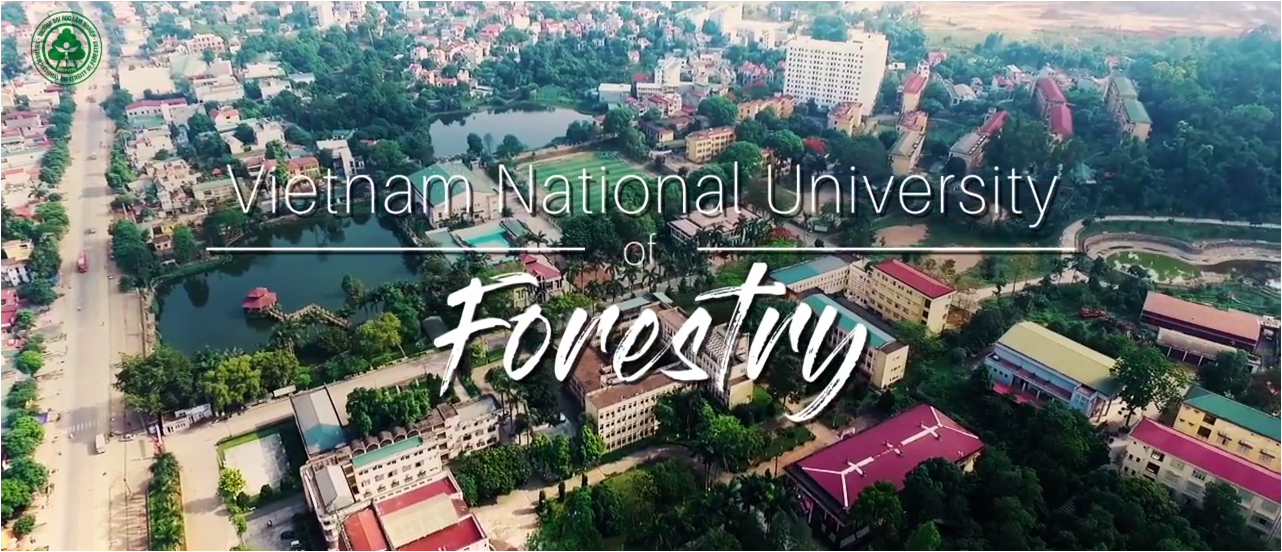
– To be the leading center of training, scientific research and technology transfer in Vietnam in the fields of forestry, forest product processing and rural development, natural resource and environmental management, prevention and disaster mitigation; fine arts and landscape architecture, engineering - technology.
- Providing high-quality human resources, having a decisive influence on the forestry human resources of the country, contributing to the sustainable development of socio-economic and environment development in rural, midland and mountainous areas of the country.
A graduation ceremony and certificate issue for K58 advanced training program (2013-2017) on Natural Resources Management.
20 tháng 12, 2017Attending the ceremony were Asso.Prof. Bui The Doi - Vice President; Asso.Prof. Phung Van Khoa - Dean of Forest Resources and Environmental Management; MSc. Pham Van Hung - Vice Director of Academic Affairs Division; MSc. Nguyen Sy Ha - Head of Politics and Student Affairs Division together with K58 students of the program and their relatives.
At the ceremony, MSc. Pham Van Hung - Vice Director of Academic Affairs Division has read a result report of K58 Natural Resources Management, Avanced Program. There are 64 graduates including 02 excellent graduates (3.1%), 29 very good graduates (45.3%), 33 good students (51.6%). After 4.5 years of study, the students have completed the study program with high results. It is a consequence of the student effort combined with responsibility, enthusiasm, dedication of lecturers and the concern of the univesity leaders.
Congratulations to new engineers, on behalf of the university rector board, Assoc.Prof. Bui The Doi - Vice president has acknowledged and appreciated the dedication of lecturers, efforts of students to overcome all difficulties and challenges in order to complete the training program. The advanced program is a new training model, with links between VNUF and Colorado State University (CSU) in the United States. Accordingly, learners are taught entirely in English by professors, lecturers of CSU and VNUF (except for compulsory subjects in political theory as assigned by the Ministry of Education and Training).
This is the fourth graduation. This advanced training program has contributed to improve the training quality of the university, to provide human resources with high professional knowledge, good soft skills and good communication skills in English for the society. The university leaders thank families of the new engineers for their trust in a prestige and quality of the university to provide the country with a young, creative and well integrated scientists in the field of natural resources management in general, forest resources in particular.
Over the past four years of studying and overcoming many difficulties to study and discover new knowledge and skills, an engineering degree students received today is an important landmark and a beginning of their lives with new experiences waiting ahead. The University is always open to welcome students to come back to study at higher levels, and contribute to the development of the University.
With eagerness and proudness, the representative of students has expressed gratitude to the teachers and managers of the university has created best conditions, excellent teaching during the study period. The student promises to apply the learned knowledge, experiences and skills for future work, and will continue to strive, continue learning contributing to the development of society.
At the ceremony, MSc. Nguyen Sy Ha - Head of Head of Politics and Student Affairs Division has announced the decision to commend and award certificates of merit to individuals with excellent learning results during the course.
Also at the ceremony, the university leaders and the head of Faculty of Forest Resourcesand Environmental Management awarded certificates of merit to students with excellent achievements in study.
Some photos of the ceremony are as follows:
 Assoc.Prof. Bui The Doi - Vice President give an opening speech
Assoc.Prof. Bui The Doi - Vice President give an opening speech
 Mr. Pham Van Hung - Vice Director of Academic Affairs Division reading a result report
Mr. Pham Van Hung - Vice Director of Academic Affairs Division reading a result report

 The representative of students has expressed gratitude to the teachers and managers of the university
The representative of students has expressed gratitude to the teachers and managers of the university
 The university leaders and the head of Faculty of Forest Resources and Environmental Management awarded certificates of merit to excellent students
The university leaders and the head of Faculty of Forest Resources and Environmental Management awarded certificates of merit to excellent students
 This would be the most memorable moments in their lives of the new engineers
This would be the most memorable moments in their lives of the new engineers
and wishing them success in the future.
Introduction of Vietnam National University of Forestry - History and development
12 tháng 10, 2017
Vietnam National University of Forestry was established on 19 August, 1964 according to Decision No.127/CP dated 19/08/1964 of the Government Council on basis of separation of Faculty of Forestry Sciences and Mechanized group of forest exploitation of Hanoi University of Agriculture (now Vietnam National University of Agriculture)
In the period of 1964-1984: The University's head office was located in Dong Trieu, Quang Ninh Province. In this period, the University implemented the task of university-level personnel training for the forestry sector, it had 03 faculties, 04 training majors in the forestry sector.
From 1984 until now, the University's head office has been located in Xuan Mai town, Chuong My, Hanoi. In this period, the university has implemented the development strategy of multidisciplinary, multi-level and multi-sector university to meet human needs and deal with scientific and technological tasks of the country.
In 2008, the University established the Second campus which is located in Trang Bom town, Trang Bom District, Dong Nai province, on basis of merger and upgrade of Forestry High School No. 2 of Ministry of Agriculture and Rural Development to meet the personnel training need in the forestry sector for the southern provinces. In 2016, Ministry of Education and Training signed Decision on establishing Vietnam National University of Forestry Southern Campus.
Currently, the University is training 34 university level majors (Natural Resources Management (in English) Accounting Agricultural Economics Agricultural Extension Automotive Engineering Technology Biotechnology Business Administration Construction Engineering Crop Science Economics Ecotourism Environmental Science Forest Resource Management Forestry Industrial Design Information Systems Interior Design,Land Management Landscape Architecture Livestock Industry Material Technology Mechanical Techniques Mechatronics Engineering Technology Natural Resources Management Plant Protection Post-harvested Technology Real Estate Resource Management and Environment Silviculture Social Work Tourism and Service Management Urban Forestry Veterinary Wood Processing Technology); 11 master majors (Economic Management Environmental Science Forest Resources Management Land Management Mechanical Techniques Silviculture Wood Technology,Tropical Forestry (in English) Agriculture Economics Applied Art Biotechnology) and 06 doctoral majors (Mechanical Techniques Silviculture Wood Techniques,Agricultural Economy Forest Resources Management Forest Inventory and Planning).
Since 1964, the University has trained over 42,000 undergraduates, 4,000 graduate students, and nearly 100 PhD candidates. The university has also trained over 400 international students at both undergraduate and graduate levels. The officers graduating from Vietnam National University of Forestry have been having an important contribution to the sector development, comprehensive socioeconomic development on the whole country, including many comrades who have been undertaking many key positions of the Party and the State from the central to the local. In addition, the university has trained more than 300 engineers, masters for the countries: Laos and Cambodia.
Vietnam National University of Forestry has cooperated with more than 130 universities and research institutes from the USA, Canada, Japan, Germany, Switzerland, Sweden, Russia, Finland, the Netherlands, Australia, Spain, Belgium, France, Italy, South Korea, China, Malaysia, Thailand, the Philippines and Laos and with international organizations such as FAO, UNDP, WB, IUCN, FFI, CIFOR, WWF, ITTO, JICA, ICRAF, GIZ, DAAD, KOICA.etc..
With these achievements, Vietnam National University of Forestry has been awarded many honorable titles: Labour Hero of reform era in 2009; First class independence medal in 2014, Second class independence medal in 2004, Third class independence medal in 1994; First class labour medal in 1989, Third class labour medal in 1984 and 1996; Second class labour medal in 2006 for Facility 2; Emulation Flag of Government in 2008. The university has been awarded by Laos Government: Medal of Freedom in 1984; Friendship Medal in 2000. The university has been awarded the emulation flag of Ministry of Education and Training in 1993; that of Ministry of Defense in 2000; Ministry of Agriculture and Rural Development (2003, 2007, 2013) and Certificate of Merit from the ministries, branches and provincial and district administrative units...
Enrollment and application
12 tháng 10, 2017To know how to apply and enrollment procedures as well as to get all document forms for application.
Please email or contact the following staff:
1. For general information: Asso.Prof.Dr. Pham Minh Toai
Director of Academic Affairs Division
Email: toaipm@vnuf.edu.vn
Tel: 024 33 840 440
2. For the master's program, contact person: Asso.Prof.Dr. Vu Tien Thinh
Vice Director, Division of Post-Graduate Study, the 5th floor A2 Building, Vietnam National University of Forestry
Xuan Mai, Chuong My, Hanoi, Vietnam.
Email: vutienthinh@hotmail.com
3. For bachelor program, contact person: Ms.C. Nguyen Thi Bich Hao
Department of Environmental Engineering, Faculty of Forest Resources and Environmental Management, Vietnam National University of Forestry, Xuan Mai town, Chuong My district, Hanoi, Vietnam.
Email: repeaterfu@gmail.com
Education introduction at VNUF
8 tháng 10, 2017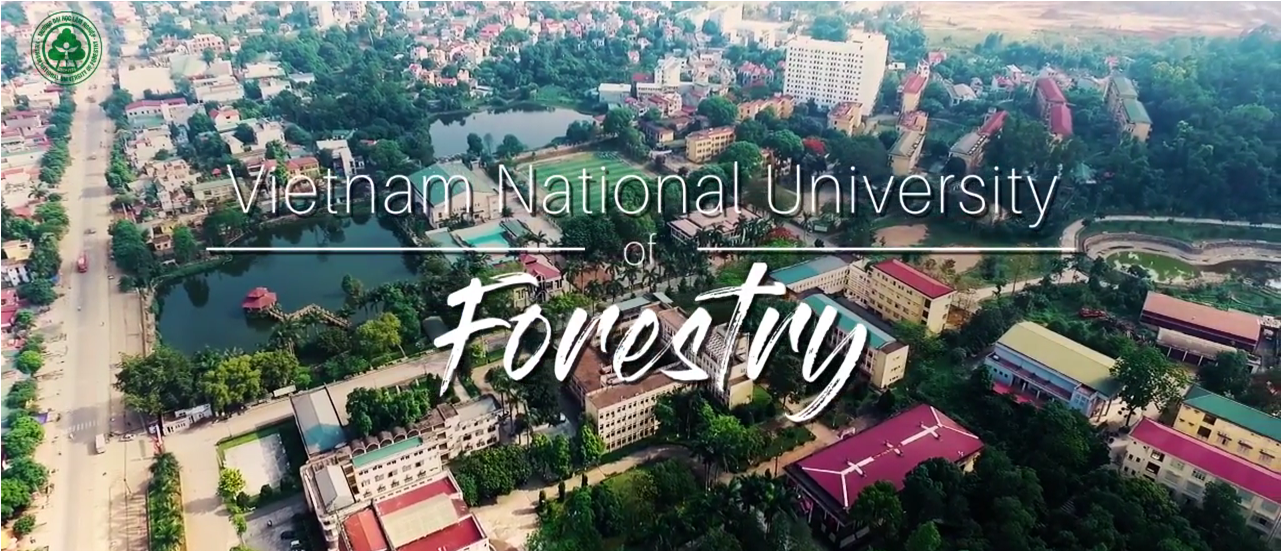
At present, the University has 26 specialized training fields for Bachelor level; 06 fields for College; 11 fields for Master; 06 majors for Doctor, 5 Faculties and 05 specialized institutes.
Training scale
Since 1964, the University has trained over 42,000 undergraduates, 4,000 graduate students, and nearly 100 PhD candidates. The university has also trained over 400 international students at both undergraduate and graduate levels. Currently more than 13,000 students are studying at the university in 34 undergraduate programs, 11 master programs, and 6 doctoral programs. The university is striving to become a multi-disciplinary and multi-sector university on par with universities in the region and the world by offering the advanced programs developed in cooperation with institutions in the USA and Germany.
Training management method
At present, the University applies two training methods for different target groups:
Credit-Based Training: Apply to full-time, second certificate and post-graduate (master's) programs.
Year-by-year training: Apply to work-study systems.
Education program
In training activities, the University is always interested in researching and renovating contents of training programs in the direction of updating scientific and technological advances to best meet the social demands in each stage of development.
The training program is designed on the basis of modularization of knowledge in the credits, which facilitates the student's choice of study program in accordance with individual plans and conditions. On the other hand, the structure of the credit-based curriculum allows for easy learning between the professions, opening up the possibility of transferring to higher education or further education. The design of the credit-based training program creates many favorable conditions for learners but requires the University to improve the ability.
The University has actively researched and implemented actively and creatively the guidelines of the Party and State on education and training. It has step by step increased the training scale in order to meet the high quality human resources for multi-sector economy by diversifying the types of training and opening new specialties. Simultaneously with the expansion of the scale, the University has also renovated the objectives, contents of the program and training methods, improved training management to ensure quality.
International training programs (Bachelor)
8 tháng 10, 2017
The advanced program of Natural Resources Management has started training since 2010. To date, there has been three graduating class. Graduate students currently working in various agencies in forest protection, national park, nature reserve, research, training and consultation (domestic and international), forest policy, especially in many international organizations in the field of forestry and rural development, natural resources and environment protection…
1. Code: D 850101
2. Duration: 4.5 years
3. Total credits: 131 credits
4. Courses Syllabus (detail) – Click here
5. List of courses:
| No | Subject | Credits | Note |
|---|---|---|---|
| I | General curriculum | 45 |
|
| I.1 | Required knowledge | 43 |
|
| 1 | Basic Principles of Marxism-Leninism | 5 |
|
| 2 | A revolutionary way of the Communist Party of Vietnam | 3 | 1 |
| 3 | Conception system of Ho Chi Minh | 2 | 1 |
| 4-7 | Physical education |
|
|
| 8-9 | National Defense Education |
|
|
| 10 | English 1 | 4 |
|
| 11 | English 2 | 3 | 10 |
| 12 | English 3 | 3 | 11 |
|
| English 4 | 2 |
|
| 13 | General Physics | 2 |
|
| 14 | General information | 4 |
|
| 15 | General chemistry | 3 |
|
| 16 | Analytical Chemistry | 2 | 15 |
| 17 | Biological | 2 |
|
| 18 | Advanced Math B | 3 |
|
| 19 | Probability statistics | 3 | 18 |
| 20 | General law | 2 |
|
| I.2 | Optional Modules | 2/8 |
|
| 21 | Environmental Chemistry | 2 |
|
| 22 | Methods of processing environmental data | 2 |
|
| 23 | Environmental ethics | 2 |
|
| II | Knowledge of Professional Education | 75 |
|
| II.1 | Industry basis knowledge | 39 |
|
| II.1.1 | Required modules | 35 |
|
| 24 | Geodesy and map | 3 |
|
| 25 | GIS and remote sensing | 3 | 24 |
| 26 | Environmental science and natural resources | 3 |
|
| 27 | Natural resources and environmental economics | 3 | 27 |
| 28 | Environmental statistics | 2 |
|
| 29 | Hydrometeorology | 2 |
|
| 30 | English Major | 2 | 9, 10, 11 |
| 31 | Land use and water quality | 3 |
|
| 32 | Environmental ecology | 2 |
|
| 33 | Environmental monitoring and analysis | 4 |
|
| 34 | Environmental technology | 3 |
|
| 35 | Environmental Management | 2 | 34 |
| 36 | Soil | 3 |
|
| II.1.2 | Optional modules | 4/18 |
|
| 37 | Clean production | 2 |
|
| 38 | Spatial analysis in natural resources management | 2 |
|
| 39 | Energy and mineral resources | 2 |
|
| 40 | Integrated coastal management | 2 |
|
| 41 | Water resources management | 2 |
|
| 42 | Access to the system in environmental management | 2 |
|
| 43 | Forest fire management | 2 |
|
| 44 | Environmental microorganisms | 2 |
|
| 45 | Seminar | 2 |
|
| II.2 | Major | 36 |
|
| II.2.1 | Required modules | 30 |
|
| 46 | Environmental modeling | 2 | 28, 33, 34 |
| 47 | Ecological services | 2 |
|
| 48 | Waste management | 2 |
|
| 49 | Climate change and global policy | 2 |
|
| 50 | Land use management | 2 | 36 |
| 51 | Environmental planning | 2 |
|
| 52 | Environmental impact assessment | 2 |
|
| 53 | Biological engineering of environmental management | 2 |
|
| 54 | Environmental management technology | 2 |
|
| 55 | Control hazards and environmental risks | 2 |
|
| 56 | Flora | 3 |
|
| 57 | Fauna | 3 |
|
| 58 | Forest tree disease | 2 |
|
| 59 | Forest insects | 2 |
|
| 60 | Watershed management | 2 | 29, 31 |
| II.2.2 | Optional modules | 4/18 |
|
| 61 | Integrated ecosystem management | 2 |
|
| 62 | Biological environmental indicator | 2 |
|
| 63 | Application of Biotechnology | 2 |
|
| 64 | Landscape ecological planning | 2 |
|
| 65 | Environmental law and policies | 2 |
|
| 66 | Payment for Forest environmental services | 2 |
|
| 67 | Environmental audit | 2 |
|
| 68 | Seminar | 2 |
|
6. Score
|
| Equivalents | English Description | ||||
|---|---|---|---|---|---|---|
| From | 8,5 | to | 10 | A | 4,0 | Outstanding |
| From | 7,8 | to | 8,4 | B+ | 3,5 | Excellent / Very Good |
| From | 7,0 | to | 7,7 | B | 3,0 | Good |
| From | 6,3 | to | 6,9 | C+ | 2,5 | Average |
| From | 5,5 | to | 6,2 | C | 2,0 | Pass |
| From | 4,8 | to | 5,4 | D+ | 1,5 | Pass |
| From | 4,0 | to | 4,7 | D | 1,0 | Pass |
| Lower than 4,0 | F | 0,0 | Fail | |||
Requirement documents include:
- A passport copy and photo
- Notarized copy of university degree and academic transcript.
- Certificate of recognition for certificates from foreign institutions by the Ministry of Education and Training
(if any).
- Health certificate of the hospital within 6 months.
- A notarized copy of the foreign language certificate (if any).
- Curriculum vitae.
- COVID Insurance.
Select 1 out of 5 Minors (**)
- Spatial Information Management Systems - SIMS
- Forest Resources Management - FRM
- Watershed Science – WS
- Parks & Protected Area Management - PPAM
- Natural Resource Recreation and Tourism - NRRT
For bachelor program, contact person:
Ms.C. Nguyen Thi Bich Hao
Department of Environmental Engineering, Faculty of Forest Resources and Environmental Management, Vietnam National University of Forestry, Xuan Mai town, Chuong My district, Hanoi, Vietnam.
Email: repeaterfu@gmail.com
International master program enrollment and application
20 tháng 12, 2017Admission requirements
To be considered for admission you have to fulfill the following requirements:
- Professional degree (BSc or equivalent) in forestry or a related field (e.g. Agriculture, Geography, Wood processing, Natural resource management and so on) with good results approved by an institute of higher learning or a similar qualification.
- Good English skills
- We welcome applicants with professional experience.
Application
Following documents must be provided additionally as certified and translated paper copies:
- Photo (passport size)
- Certified copies of qualifications (BSc/MSc certificate), including detailed results of the final exam (transcript)
- Certificate of proficiency of English (TOEFL, IELTS, or similar)
- Health certificate of the hospital within 6 months.
- A notarized copy of the foreign language certificate (if any).
- Curriculum vitae.
- COVID Insurance.
To download application form, click here!
o get all other documents and information for your application and, please contact:
Asso.Prof.Dr. Thinh Vu
Email: vutienthinh@hotmail.com
Bachelor education
12 tháng 10, 2017
Specialized training fields:
1. Business Management
2. Land Management
3. Wood technology
4. Biotechnology
5. Silviculture
6. Civil Engineering
7. Urban Forestry
8. Natural Resources Management (Advanced Program)
9. Mechanical Engineering Technology
10. Mechanical Engineering
11. Automotive Engineering Technology
12. Forest Resources Management
13. Environmental Science
14. Landscape Architecture
15. Interior Design
16. Accounting
17. Economics
18. Crops Science
19. Social work
20. Management of Natural Resources and Environment
21. Plant Protection
22. Information systems
23. Tourism and Travel Management
24. Veterinary
25. Real Estate
26. Forestry
For more and detail information, please click here!
Information will be in Vietnamese.
International master program introduction
20 tháng 12, 2017Introduction to International Master Program in Forestry
Introduction to International Master Program in Forestry
After two years of discussions and several kick-off meetings, Vietnam National University of Forestry (VNUF) is happy to hold the Opening Ceremony for the first International Master Program in Forestry. The partner includes University of Gottingen (Germany), University of Dresden (Germany) and German Academic Exchange Service (DAAD) and the National University of Laos, the Royal University of Agriculture of Cambodia. The classes will be fully taught in English by the outstanding professors from Germany and Asia, and experts from several global organizations such as GIZ. Vietnam National University of Forestry is proud to host this program. Students will finish the Master program in two years. Students will be tough not only in the classroom but also practically in the field.
Students will take the classes related to the following academic areas: Forest science; Biodiversity conservation and protected area management; Sustainable forest management and Forest certification; Forestry policy; Climate change; GIS and Remote sensing.
Current students come from several countries in Asia, such as: Vietnam, Myanmar, Laos, Cambodia, Pakistan, Bangladesh and Indonesia. Students are not only equipped with knowledge, skills to be the leader in the Forestry and Natural Resources Management sectors in their home country but also are participated in leaders network. Most students got scholarship from half tuition, full tuition, room, to monthly allowance for daily living cost.
The next enrollment will be hold in September, 2017. The program is open for students from any country in the world. For more information, please contact:
Assoc.Prof., Dr. Vu Tien Thinh.
Deputy Head, Division of Post-Graduate Study, A1 Building, VNUF.
Address: Xuan Mai, Chuong My, Hanoi, Vietnam.
Email: vutienthinh@hotmail.com
Students and Professors

Master education
12 tháng 10, 2017
Master training at the University
Master training: enrollment twice a year
Training specialtites:
1. Forestry
2. Management of forest resources
3. Forest product processing
4. Mechanical engineering
5. Agricultural economics
6. Environmental Science
7. Economic management
8. Biotechnology
9. Application art
10. Land management
11. Management of Natural Resources and Environment
I. Training objectives
Master degree training to help students supplement, update and improve their knowledge; strengthen interdisciplinary knowledge; have in-depth knowledge in a particular field of study as well as skills to apply that knowledge to professional practice; to have a good independent working ability, creative thinking and ability to detect and solve problems in the sector.
II. Form, language and duration of training
2.1. Master's degree training at the University is conducted in the form of formal education and application orientation.
2.2. The official language used in master's degree training is Vietnamese, except for some international programs.
2.3. Duration of master's training:
a. Official training duration is 2 years.
b. Extension of training: If the training duration is over, the trainees shall have to carry out the extension procedures and the extension duration shall not exceed 2 years.
III. Method, number and place of enrollment
3.1. The method of enrollment for master's training includes: recruitment examinations for Vietnamese and recruitment checking for foreigners who want to study for a master's degree in Vietnam.
3.2. The master's degree enrollment is held 1-2 times a year. The president bases on learning needs, the actual situation of the University to determine the number of enrollment and the time of enrollment next year and report to the Ministry of Education and Training in December every year.
3.3. Place for enrollment examination:
a. Main campus of VNUF, address: Xuan Mai Town, Chuong My District, Hanoi.
b. Branch 2 of VNUF, address: Trang Bom Town, Trang Bom District, Dong Nai Province.
3.4. The regulations of the University on the enrollment method, the number of enrollments, the time of enrollment in the year and the place of enrollment are posted on the website of the University: vnuf.edu.vn. Or www.sdh.vnuf.edu.vn
IV. Examination subjects
4.1. The enrollment examination consists of three subjects, namely:
a. Foreign language: Foreign language requirement for applicants are determined based on master training fields;
b. The other two subjects: They are core subjects of the sector, will be defined according to the requirements of each major.
4.2. The following candidates do not need language examination:
a. Having a university degree, master's or doctoral degree, which have been trained full-time abroad and recognized by competent agencies according to current regulations;
b. Graduated from advanced undergraduate training program (in English) under the scheme of the Ministry of Education and Training in some universities in Vietnam or high-quality engineer (PFIEV) confirmed by the committee engineer level (CTI, France);
c. Having a university degree in foreign languages;
d. Having a certificate of the foreign language specified in this regulation or equivalent within two years from the date of issue of the certificate to the date of registration for the examination. The University will assess the authenticity of the foreign language certificate before recognizing equivalence.
V. Obligation for applicants
5.1. About the certificate
a. Having graduated with a university degree certificate in the suitable fields, compared to registered sectors;
b. University graduates of other majors may register for enrollment after they complete additional courses;
c. University certificates issued by foreign educational universities must carry out recognition procedures according to current regulations;
5.2. The C.V of the candidate must be clear and not in execution time or time of disciplinary action.
5.3. The candidate must be healthy enough to study and finish the master training program.
5.4. To submit all necessary documents according to the University's regulations.
Doctorate education
8 tháng 10, 2017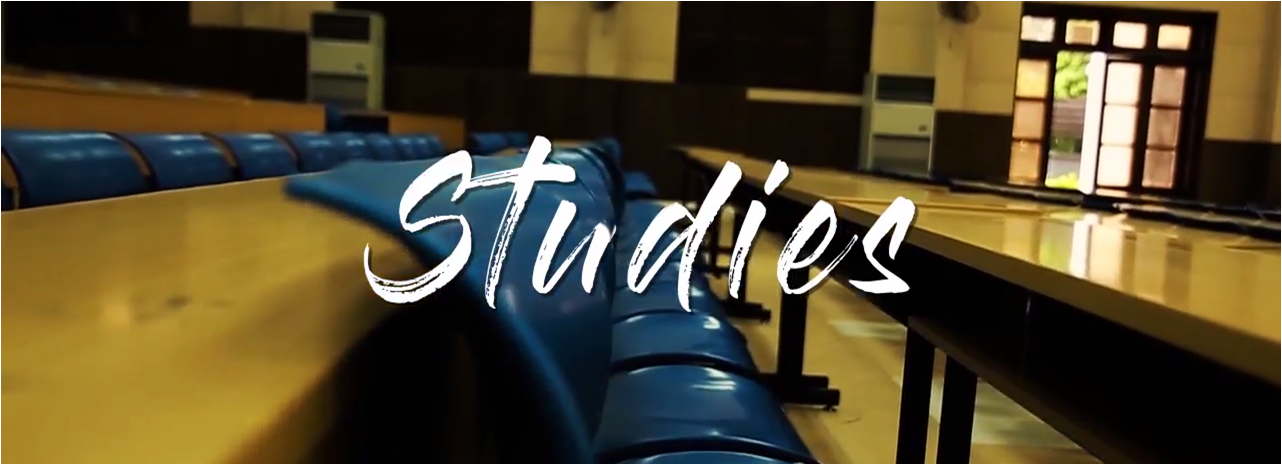
Doctorate training at the University
Training specialties:
1. Silviculture
2. Forest Inventory and Planning
3. Management of forest resources
4. Forest product processing techniques
5. Mechanical engineering
6. Agricultural economics
I. Training objectives
Ph.D. training is to educate highly qualified scientists in a theoretical and practical capacity. They will have a good ability to do research independently, creatively, a good ability to detect and solve new problems of science, technology and supervise scientific research.
II. Form and duration of training
2.1. The duration of doctoral degree training for a person who holds a master's degree is 3 years (36 months); For those who have a university degree certificate is 4 years (48 months).
2.2. If Phd students do not study full-time, they must have a total of at least 12 months of intensive study at the University to carry out the research project.
III. Time and method of enrollment
3.1. Doctoral candidates are offered 1 to 2 times per year.
3.2. Admission form: Admission.
IV. Conditions for recruiting doctoral degree
Candidates for doctoral training must meet the following conditions:
4.1. Hold a master's degree in accordance with the registration specialization. In case of not having a master's degree, they must have a university degree with a good or excellent bachelor certificates which are suitable to the major in the recruitment.
Depending on the actual situation, the annual enrollment will show details of requirements on work experience and professional working time that candidates will need before applying. The annual enrollment will show requirements about certificates, average marks and fields at undergraduate or graduate levels to be eligible for admission to the doctoral program.
Special cases such as recruitment candidates are foreigners or transfer of training and so on, the University will set up a University-level Council to consider each case.
4.2. There is a research proposal, clearly presenting the subject or field of study, the reasons for the selection of the field of study, the desired aims and the reasons for the selection of the institution; plan implemented in each period of training duration; the experience, knowledge, understanding as well as the preparation of the candidate in the field of study; expected employment after graduation; suggested supervisors.
4.3. There are two letters of recommendation from two scientists who hold a scientific title, such as professor, associate professor, or doctor; or a letter of recommendation from a scientist in the same field and a letter of recommendation from the head of the applicant's working institution.
These recommenders are scientists who have at least 6 months of work or professional experience with the applicant. Letters of recommendation must include remarks and assessments of candidates' qualifications and capacity, including:
a. Moral qualities, especially professional ethics;
b. Capacity of professional activities;
c. Working methods;
d. Research capabilities;
e. Ability to work in teams;
g. The strengths and weaknesses of the candidates;
l. Prospects for professional development;
h. Other comments and level of support and introduction for candidates to do PhD.
4.4. Having enough English skills to understand references, participate in professional activities to conduct dissertation research.
4.5. To be nominated by the human resource management agency (if the person is employed.
Unemployed people need to be confirmed by the police where they live that they have no criminal record.
4.6. Commitment to perform financial obligations during the training process.
5. The applicant's English requirements
5.1. Applicants must have one of the following certificates:
a. Candidates must have an IELTS 5.5 or higher or equivalent English certificates;
b. University or master's certificates trained in English;
6. Announcement of enrollment
6.1. At least three months before enrollment, the University will issue an admission announcement.
6.2. Announcement of enrollment is posted at the University, and send to the relevant agencies, posted on the University's website (address: http://env.vnuf.edu.vn)
Cooperation introduction
12 tháng 10, 2017INTERNATIONAL COOPERATION STRATEGY - VIETNAM NATIONAL UNIVERSITY OF FORESTRY IN THE PERIOD OF 2017 - 2020, VISION TO 2030
Chapter 1
MISSION, VISION, AND DEVELOPMENT OBJECTIVES
1.1. Introduction to Vietnam National University of Forestry
1.1.1. Tasks
Vietnam National University of Forestry was established on 19 August 1964 according to Decision No.127/CP dated 19/08/1964 of the Government Council with the main tasks
- To train scientific and technical staff, managers who have undergraduate and postgraduate degrees in forestry.
- To foster for staff at all levels of the forest sector on the basic principles of science and technology and professional management of the sector.
- Scientific research and technology transfer in order to contribute to evaluate the experience and building professional theory and techniques of the forestry sector.
1.1.2. History of construction and development
In the period of 1964-1984: The University's head office was located in Dong Trieu, Quang Ninh Province. In this period, the University implemented the task of university-level personnel training for the forestry sector, it had 03 faculties, 04 training majors in the forestry sector.
From 1984 until now, the University's head office has been located in Xuan Mai town, Chuong My, Hanoi. In this period, the university has implemented the development strategy of the multidisciplinary, multi-level, and multi-sector university to meet human needs and deal with scientific and technological tasks of the country.
In 2008, the University established the Second campus, which is located in Trang Bom Town, Trang Bom District, Dong Nai province, on basis of merger and upgrade of Forestry High School No. 2 of the Ministry of Agriculture and Rural Development to meet the personnel training need in the forestry sector for the southern provinces. In 2016, the Ministry of Education and Training signed a Decision on establishing the Vietnam National University of Forestry Southern Campus.
1.1.3. Outstanding achievement
Looking back at the history of over 50 years of development, the outstanding achievements of VNUF are as follows:
About training and education: VNUF is at the forefront of innovation of goals, programs, curriculum, teaching methods, and scaling up professional development. As of December 2016, VNUF has trained 40,000 engineers and bachelor's, more than 4,000 MSc and 100 PhDs. The officers trained by VFU make up an important part of the total number working in the scientific and technical management of the forest sector. More than 200 officers, who have been educated by VFU, are holding key leadership positions in state agencies. The VNUF has highly qualified teachers, good foreign languages, many people are on the list of lecturers of prestigious universities in the world. The officers trained by VNUF make up an important part of the total number working in the scientific and technical management of the forest sector. More than 400 engineers and bachelors, MSc and PhDs for Laos and Cambodia. In addition, the VNUF trained pupils from ethnic minorities grade 10 to 12, providing resources for staff in rural areas
- About scientific and technology development: Vietnam National University of Forestry become the leading University of forestry in Vietnam, a center for scientific center for forestry, the environment, wood technology, natural resource management, biotechnology, forestry policy, climate change, Prevention and Mitigation of Natural Disasters, Forest Fire Prevention, GIS, biodiversity. The VNUF has a system of laboratories, seedling garden, and modern research centers to meet the research and training requirements. The scientific staff has the ability to cope with the realization of projects in the forestry sector and has the capacity to integrate with other countries in the region and internationally.
- About International cooperation: International cooperation has always been key priorities for autonomy, integration, and has created a position, brand for VNUF. The VNUF has established cooperation with more than 60 universities, organizations, and research institutes in the world. The school has been received many international experts and volunteers to work at the VNUF. Lecturers are well trained abroad, they participate in national forums, conferences, international workshops on forestry and sustainable development. Lecturers who studied abroad make key positions at the school. The number of lecturers working with foreign experts reached 30% in 2010, increasing to 70% in 2016, the rest can read, translate or communicate in at least 01 foreign languages. The number of lecturers remaining can read the book, translate or communicate with at least 01 foreign language
The school has successfully implemented many international projects and contribute to the VNUF's capacity and position. Every year, VNUF organizes more than 20 academic exchanges with foreign experts, welcomes and works with over 50 international delegations with more than 150 visitors from countries and international organizations. At the same time, VNUF supports 100 turns of lecturers to attend seminars, conferences, training cooperation, and research with foreign partners.
- About construction of infrastructure and facilities: In particular, from 1984 until today, VNUF has built a spacious campus upon a bald hilly area to meet the requirements for high-quality training and scientific research of officers and students of VNUF. VNUF has planted an experimental forest comprising an area of over 150 hectares with more than 200 species of native plants brought from throughout the country. It is not only serving as the study and practice area for lecturers and students of VNUF, it also provides an outdoor lab that is very valuable for scientific research activities in the future. We are proud to say that, there are only a few universities having such beautiful and fresh scenery as VNUFhas 18 hectares on campus 2, VNUF meets the requirements of international standards.
- About staff organization: VNUF has Staff planning strategy. While beginning with 128 employees at its opening, VFU now has a staff of 1,008 including contracted personnel (with 575 lecturers, 26 professors and associate professors, 117 Ph.D., 339 MSc, and more than 100 staffs are studying abroad. Every year there are 8-10 professors, associate professors, 20-30 PhDs recognized.
Over 53 years of construction and development, VNUF was honored for its outstanding contributions to the human resource development of the country. The school has been awarded many noble titles by the Party and State.
1.2. Mission, vision, and development objectives
1.2.1. Mission
Becoming one of the leading universities for the training of highly qualified personnel to meet the development requirements for Forestry and Rural Development; considered as a prestigious science and technology center of forestry, natural resources, and environment, prevention and mitigation of natural disasters, contributing to sustainable environmental, social, and economic development of the country, particularly in rural areas and mountainous midlands.
1.2.2. Vision
Vietnam National University of Forestry becomes a center for scientific center for forestry, the environment, wood technology, natural resource management, biotechnology, forestry policy, climate change, Prevention and Mitigation of Natural Disasters
1.2.3. The development objectives:
Vietnam National University of Forestry is to be further promoted and enhanced in order to become the leading University of forestry in Vietnam and region on human resource training, and scientific research with high prestige and equal relations with universities and research institutes in the country
Chapter 2
CURRENT SITUATION OF INTERNATIONAL COOPERATION ACTIVITIES
2.1. Domestic and International Context
International cooperation activities of VNUF has taken place in the changing international context, especially globalization of economics - culture takes place quickly, development cooperation and strong competition. There are large global issues and should be cooperation among countries to address as: ecological environment, sustainable development, biodiversity… At the same time, the world trend is universities are expanding autonomy, self-responsibility. So, reforming the form, content of the program and training methods is an urgent requirement for universities to survive and develop in the context of increasingly intense cooperation and competition
In the domestic context, the government has considered education and training together with science and technology as the top national policy, with the policy of radical and comprehensive reform of higher education in Vietnam has created new strategy for universities with a vision to 2020.
2.2. Current situation of international cooperation activities.
International cooperation of Vietnam National University of Forestry in recent years has experienced fundamental changes in which most of the forms of cooperation have turned into cooperation of mutual benefits. Besides, many universities and organizations make visits to exchange and establish a new relationship with the school; especially they want to exploit the strengths of the school in the field of forestry. Cooperation activities are continuing to be expanded and go into depth, and more international cooperation projects have been fully exploited.
In the process of accessing and implementing the international advanced training programs, a large proportion of teaching staff and management have had engaged conditions, having learned new teaching methods, and how to build an advanced training program of high quality, so the qualification of the teaching staff has been raised significantly. In addition, staff working in international cooperation has good qualifications, language proficiency, enthusiasm and efforts to identify research problems, being clever in understanding foreign partners, capable of promptly giving proposed topics and projects with good contents, in accordance with the conditions of the university
The university owns a plentiful source of international officers and teachers from countries like the US, Netherlands, Germany, Canada, Australia, France, Russia, Japan, Korea, China etc. Facilities, classrooms, school equipment are enhanced from foreign funds, the school's reputation in the international partners has been raised significantly, opportunities for training, scientific research and transference with universities, the education and training organizations in the world and in the region have been increasing.
The results of several international cooperation activities of the university in 2012-2016 are included as follows:
The university has improved and expanded partnerships with over 65 universities and training institutions and research institutes in nations such as Germany, USA, Netherlands, Australia, Japan, Finland, etc., domestic and foreign organizations as FAO, DAAD, UNEP, World Bank, WWF, JICA, GIZ, etc., undoubtedly this can help contribute to confirm the position of the university in the country and in the world through the domestic and international programs, projects, forums, conferences and conferences;
International cooperation of the university has contributed to capacity building of the staff, lecturers and students in the school. Every year about 100 turns for students and staff attend training courses and seminars in foreign countries;
Many conferences, international conferences have been successfully organized with the participation of hundreds of national and international experts, which highlights the workshop on "The link between research, training and development of production, serving forestry restructures in Vietnam "on the occasion of the 50th anniversary of the university establishment and the workshop on "Climate change and REDD+ implementation in Vietnam" on the occasion of the 60th anniversary of forestry faculty establishment
Collaboration with the University of Colorado - the United States with advanced training programs of natural resource management has been effective; Dresden University and the University of Gottingen (Germany) have developed a master training program of tropical forestry in English with the support of the DAAD;
International cooperation activities have initially established international training environment with the participation of dozens of experts and volunteers to work, to teach, and to do research at the school;
The university has successfully implemented a number of international projects including cooperation with KNCF Fund (Japan) in the establishment of training centers for nature conservation for students and boarding ethnic pupils; cooperation with the programs and projects such as the UN-REDD, Vietnam Forests, and Deltas Program (VFD), Emission Reduction Program in the Asian Forests (LEAF) in developing training programs and improving resources for faculty members in mitigation and adaptation to climate change; coordination with Jülich Institute (Germany) in research and application of frankincense production technology in a sustainable way;
Constructing and finishing the English language website to promote the university brand with other universities and organizations domestically and abroad.
2.3. Strength, weakness, opportunity and challenge of international cooperation activities
2.3.1. Strength
To active integration into the international economy in the context of globalization, especially Viet Nam has been a member of the WTO, to participate in quickly and efficiently in the System of the international division of labor, use all resources for development purposes. Therefore, we have the opportunity to speed up the process of adjusting the economic structure, and to push up the industrialization and modernization of Vietnam.
International integration, including international economic integration, also to boost international cultural exchanges and knowledge, enhance understanding and friendship between peoples. Thereby, human knowledge is crystallized in the invented condensed, scientific inventions, techniques, technology ... Like other countries in the world, Vietnam's international integration provides an opportunity for us to share the benefits of globalization. At the same time, it contributes to the development of international cooperation in many fields.
The VNUF has well-trained postgraduate scientists in the universities of advanced countries in the world. Many lecturers of VNUF teach at reputable universities around the world. They are a key staff of the VNUF in the field of expertise and management. They make important contributions to the international cooperation of the school
International co-operation has received the attention of the Party Committee, the VNUF's leadership. Besides, international co-operation activities supported the training activities
The school established and developed a long-term relationship with several universities and research institutes in the world and effectively utilized the resources of international organizations for training and research activities. and improve the capacity of staff and lecturers.
2.3.2. Weakness
- First, the international cooperation has not accumulated and promoted all the capabilities of the staff, lecturers who have a good command of foreign languages and who are trained in foreign countries; The involvement of the staff, teachers, and professional units in the international cooperation as an individual
- There is no mechanism for staff, lecturer, scientists to participate in international cooperation activities, especially in research, transfer, and implementation of international projects from departments and institutes of VNUF. Faculties and institutes do not have staff who have responsibility for international cooperation activities
- VNUF's reputation has not really created the impression with the organizations and universities in the region and in the world because international publications are limited, English website is not enough
2.3.3. Opportunity
- At present, there are many opportunities for international cooperation activities, especially in the areas of natural resource management, sustainable forest management and enhance the added value of the forest, REDD+ implementation, biodiversity conservation, environmental protection, green growth, renewable fuels. These are the strengths of VNUF with highly trained scientists who use good foreign languages
- There is an increasing demand for English language training for students in forestry, natural resource management, biotechnology, and wood processing. This is an opportunity for the VNUF to expand and develop high-quality training programs with cost appropriate to the abilities of the majority of learners.
- More and more universities and international organizations want to seek partners in order to implement projects in Vietnam such as forest and environment, sustainable forest management and forest certification, wood processing, application of high technology in agriculture - forestry ... This is an opportunity for VNUF to develop international program projects, participate in the research market and technology transfer.
2.3.4. Challenge
- Vietnam is a developing country with low economic levels, and state management is still weak and inadequate. Therefore, Vietnam will face great difficulties in both domestic and international competition, with more competition on a deeper and wider scale. The field of human resource training is also included in this rule.
- Competition in research cooperation activities for both training and transferring research has become difficult when domestic sources of funding become less and less.
- The expansion and development of high-quality training programs associated with international partners of the VNUF will be difficult if there is no good enrollment source.
Chapter 3
INTERNATIONAL COOPERATION STRATEGY
3.1. The basis of Strategy development
VNUF 's International Cooperation Strategy is built on the following basis:
1. Law No. 08/2012/QH13 dated June 18, 2012;
2. Decision No. 70/2014/QĐ-TTg dated December 10, 2014, promulgating the university charter ;
3. Decision No. 163/QD-TTg dated 25/01/2016 of the Prime Minister approve the Plan for Training and Retraining Officials in the 2016-2025 Period
4. Decision No. 759/QD-TTg dated April 19, 2011 of the Prime Minister approve the Vietnam Human Resources Development Strategy 2011-2020 period;
5. Decision No. 711/QD-TTg dated June 13, 2012 of the Prime Minister of Governmentapproving the 2011-2020 education development strategy
6.Resolution No.14/2005/NQ-CP of November 2, 2015 on fundamental and comprehensive renewal of Vietnam's higher education in the 2006-2020 period;
7. Resolution of the 10th Party Congress and Vietnam's socio-economic development strategy and forestry sector development strategy up to 2020;
8. Decision No. 3485/QD-BNN-TCCB dated 14 November 2006 on Development Strategy of Vietnam National University of Forestry for the 2006-2020 period was approved by the Minister of Agriculture and Rural Development;
9. Decision No. 2065 QĐ-BNN-TCCB dated 11/9/2013 of the Minister of Agriculture and Rural Development on adjusting and supplementing the Development Strategy of Vietnam National University of Forestry in the 2006-2020 period.s
10. Decision No. 2699/QD-BNN-TCCB dated 30/6/2016 of the Minister of Agriculture and Rural Development regulating the functions, tasks, and organizational structure of the Vietnam National University of Forestry;
11. Decision No. 2169/DHLN-TCCB dated 26/7/2016 of the President of the Vietnam National University of Forestry on the establishment of the International Cooperation Department under the Vietnam National University of Forestry;
12. Decision No. 5420 / QD-BNN-TCCB dated 27/12/2016 of the Minister of Agriculture and Rural Development promulgating the Regulation on organization and operation of the Vietnam National University of Forestry
3.2. Goals of the strategy
- Building and developing Vietnam National University of Forestry for being one prestigious university domestically and abroad through international cooperation, integration of equality, fairness and access to advanced educational standards in the world
- Enhancing the quality of human resources for the region and the world; creating an international environment and an appropriate mechanism to develop effective advanced training programs with high-quality and international projects; increasing the exchange of lecturers and students with foreign universities; strengthening the international publishing, etc. Diversify partnerships, focusing on key partners in each strategic period.
3.3. Strategy
3.3.1. Promoting capacity of staff and students
- Enhancing the capacity of staff and students through collaborative foreign and domestic programs; participating and effectively contributing at conferences nationally and abroad; having prestige and positive impacts on society; participating in solving important problems of the sector, interdisciplinary, national and international matters, such as restructuring the forest sector, climate change, sustainable development, new rural development, conservation of biodiversity.vv;
- Improving language skills for staff, faculty through increasing the number of faculty, researchers who are offered the chance to study postgraduate programs abroad, to participate in short-term training courses, international meetings and conferences;
- Promoting foreign language requirements and works published in English for lecturers in the regulations on selection, reward and material incentives;
- Provoking language ability used by students after graduation to create an environment for use of language informal learning activities, participation in international scientific exams, English clubs, environmental clubs and hobby groups of students.
3.3.2. Developing international training cooperation with foreign partners
- Internationalizing education in the context of increasingly deep and broad international integration; Continuing to promote innovative training programs in line with the trend of integration and internationalization; increasing the number of training programs in foreign languages, and joint training at all levels of training. Striving to 2020, each department and each professional institutes must perform at least 01 undergraduate or postgraduate training program affiliated with universities around the world by using English in teaching;
- Attracting quantities of international students, prioritizing students from Southeast Asia and Africa to study at the university through finding student supporting scholarships; expanding the audience of international students from developing countries under the exchange or internship programs;
- Promoting the development of collaborative training programs with universities in the region and in the world with training orientation based on the research and transfer;
- Further facilitating the exchange of lecturers and students to foreign universities, particularly the universities that have signed cooperation memorandum (MoU).
3.3.3 Strengthening scientific research and transfer of technology with international partners
- Successfully undertaking projects and research programs signed with universities and international organizations, positively activating the opening of new projects;
- Implementing deepened cooperation with international organizations for more resources for getting programs and projects worked in the areas of the school's strengths and get great international attention such as climate change, natural resource management, forest products processing technology, biotechnology in agriculture and forestry, economics and policies of agricultural, forestry and rural development;
- Assigning tasks and supporting lecturers, scientists and researchers to participate in programs, projects and research activities with foreign elements, contributing to solving the regional and international issues.
3.3.4. Other activities
- Strengthening the status of the schools from the international cooperation activities through financial contributions and the success of the programs /projects with international partners;
- Modernizing infrastructure for teaching and research, associated with the practice, practical training and employment base in the direction of gradually approaching the international level;
- Innovating mechanism of international cooperation towards the initiative, autonomy and equal direction of departments/ professional subjects
- Establishing appropriate financial mechanisms to attract the participation of units/departments and scientists.
- Innovating mechanism of international cooperation towards the initiative, autonomy and equal direction of departments/ professional subjects
- Establishing appropriate financial mechanisms to attract the participation of units/departments and scientists.
3.4. Specific solutions
3.4.1. Solutions to improve language skills for staff, faculty and students
- Developing faculty is one of the decisive factors that influence the quality of teaching and learning and the development of the higher education system for international integration. Therefore, improving the quality and quantity of qualified teachers of foreign languages is undertaken through (1 Long-term training, Full-time abroad (Ph.D., MSc) (2) Participating in short courses, conferences, international conferences; (3) Attracting many foreign professionals and volunteers to work in the university to enhance the foreign language skills for staff and faculty;
- Providing information and motivation to staff and faculty to help them have autonomy and responsibility to take part in solving the sector, interdisciplinary, national and international significant issues; participating in domestic and international conferences, workshops, forums
- Strengthening and developing the exchange program of lecturers, graduate students, trainees and voluntary teacher in the orientation of faculties/departments about making plans for the reception and the ability to contribute of foreign lecturers, graduate students, trainees to visit for exchange, to work in the department/subjects, enhancing searching, and developing teaching staff exchange program by seeking information and put relations with research institutes, universities, diplomatic organizations on the basis of reference to the orientation of the reception in the departments and units;
- In addition, the curriculum in English that has gradually been applied in teaching some subjects or some chapters/sections in a subject for Major studies taught in Vietnamese;
- Supporting student clubs to work more efficient by connecting with experts and international volunteers to work at the school, creating environment-wide communication in English for students in the school;
- Actively guiding, searching and supporting students to participate in student exchange programs, summer semesters of universities in the world, the international science exams for students.
3.4.2. Solutions to develop training cooperation with international partners
- Developing advanced training programs, high-quality training with prestigious universities in the world;
- Identifying strategic and potential partners for cooperation to develop the curriculum of the high quality of undergraduate and postgraduate programs;
- Promoting research activities and training, especially the training program which is attracting students, foreign students, and the directions of collaboration capabilities of the university and units through various forms such as advertising on the website, flyers, books/tapes / CDs, etc.
- Selecting the training program for international cooperation on issues related to regional and global matters including environmental protection, natural resource management, coping with climate change, rural development; biotechnology;
- Developing programs to improve foreign language skills for staff, faculty and students in the field of the foreign languages such as 2020 Foreign Language Scheme by the Ministry of Education and Training.
3.4.3. Solutions on international cooperation in scientific research and technology transfer
- Making a plan to strengthen the capacity of international cooperation for the units in the field of foreign language skills, project proposal writing, building a professional department to support the preparation and implementation of projects, supervision and monitoring of the project;
- Regularly organizing and participating in international scientific conferences, and promoting academic exchange programs, student exchange programs to expand the relationship, finding partners towards the creation of a network of comprehensive and efficient cooperation;
- Strengthening the signing and implementation of cooperation agreements with universities, international organizations, improving the quality of international cooperation in all phases and taking advantage of the support from organizations, foreign agencies to develop training and scientific research of the school;
- Increasing the number of publications, articles published in international journals written by the university's staff, lecturers and students through the implementation of projects/programs of cooperation with foreign partners, making good use of experts and international volunteers working in the university.
3.4.4. Other solutions
- Clarifying orientations and priorities in international cooperation activities of the school and the units, promoting multilateral cooperation with international partners nationally and abroad;
- Planning for modernizing facilities – technology for advanced training programs, high-quality programs; building and modernizing laboratories, research facilities for teaching, lecture halls, equipment for learning foreign languages, meeting rooms, workshops and spaces for activities for students) that meet the regional standard and international standards in the training units;
- Modernizing the infrastructure of information technology, strengthening computer systems, gradually improving internet system up to international standards, meeting the academic and research requirements of staff and students, the professionals and volunteers to work at the school;
- Organing an annual conference for donors, strategic international partners in order to expand the university's international relations, understanding and meeting the needs, abilities and interests of donors, and international partners in training activities, scientific research and transfer, building and undertaking international cooperation projects;
- Developing financial mechanisms to encourage units and scientists to actively participate in international cooperation activities of the units in the university;
- Strengthening the establishment of staff working in international cooperation in departments/institutes/centers, ensuring that each department/institute/center has at least 01 assistant of international cooperation with scientific expertise and proficient ability in at least 01 languages, preferably English;
- Focusing on training specialized knowledge of international relations for officials working in international cooperation at the university level and departmental / institute level.
Chapter 4: ROADMAP OF IMPLEMENTATION
4.1. The period 2017-2020
4.1.1. Enhancing capacity of faculty members, staff and students
- Strengthening the cooperation among international universities, research institutes in the world for exchange lecturers and students. Each year, the university will have at least 30 lecturers/students are exchanged with international universities;
- Strengthening of training and self-training in foreign languages; Improving language skills for staff, faculty in professional works;
- Encouraging and creating conditions for officials, lecturers and students to attend international conferences, seminars and training courses;
- Building –up an international environment to attract experts, scientists, students to work and study at the University. Striving for 50 in ternational specialists, students and volunteers to work and study at the University every year.
- Promoting cooperation for training abroad. The university strives to have at least 60 faculty members and students are trained abroad;
- Encourage and support scientists and lecturers to publish articles in prestigious international journals. The university strives to have at least 30 articles published each year in international magazines/proceedings of international seminars, especially those with SCI, SCIE...
4.2.2. Development of advanced programs and high-quality programs
- By 2020, all faculties and colleges will have at least one advanced or high-quality undergraduate training program taught in English;
- Strengthen the promotion of advanced training programs and high-quality undergraduate training programs in the region and the world. There are incentive schemes for students attending advanced, high-quality programs, especially for students from English-speaking countries and students with good academic performance;
- Continue to develop and expand the International Master Program on Tropical Forestry by seeking scholarship resources to attract more international students in addition to the DAAD grant;
- Seeking funding sources and promoting high-quality programs with the University of Colorado, Oregon ... of the United States, the University of British Columbia of Canada and the prestigious universities of the Netherlands, Australia, Germany, Japan and other developed countries;
4.2.3. Development of International Programs / Projects
- Setting up groups of experts, scientists with the same expertise and strength in foreign languages in the fields of the university's strength such as forest and environment management, climate change, sustainable forest management, biotechnology, wood processing technology, remote sensing technology and GIS, agricultural and rural development policies;
- Collaborate with universities and research institutes around the world to write proposals and implement international programs / projects. To strive to have at least 04 new programs / projects involving foreign elements every year at the University;
- Enhance the role of faculties, institutes and subjects in the opening of domestic and foreign programs / projects;
- Building capacity profiles of the univerity for international cooperation;
- Strengthen the cooperation, exchange and clearance of programs / projects from international organizations such as ADB, WB, JICA, UNDP, FAO, WWF, GIZ.
4.2. Vision to 2030
Until 2030 Vietnam National University of Forestry will become a center for counseling, training and implementation of international cooperation in the field of silviculture, forest products processing, coping with climate change, forestry economics, environmental resource management and rural development;
The university has at least 10 training programs in foreign languages (preferably in English); 60% of lecturers can teach in a foreign language, 100% of lecturers with doctoral degrees are capable of delivering lectures in a foreign language;
The university will be a training center of undergraduate and postgraduate programs for all the students in the region and the world in the field of tropical forestry and natural resource management; Centre for international student exchange for the conservation and development of forest resources, environment protection, coping with climate change, and disaster prevention;
The university has at least 10 works / international projects deployed every year.
Annually the university can attract about 30-50 professionals, students and international volunteers to work, to learn and to conduct research at the university.
Lectures and Professors of the Program
20 tháng 7, 2018Lectures and Professors of the Program
 | Assoc.Prof.Dr. BUI THE DOI - Expertise: Forest Ecology and Silviculture - Email: buithedoi@gmail.com or doibt@vnuf.edu.vn - Phd from Colorado state university. - CV |
 | Assoc.Prof.Dr. TRAN QUANG BAO - Expertise: Watershed Management, Forest Ecology, Remote Sensing & GIS Application in Natural Resource, Forest and Climate Change. - Email: baotq@vnuf.edu.vn - Phd from Colorado state university. - CV |
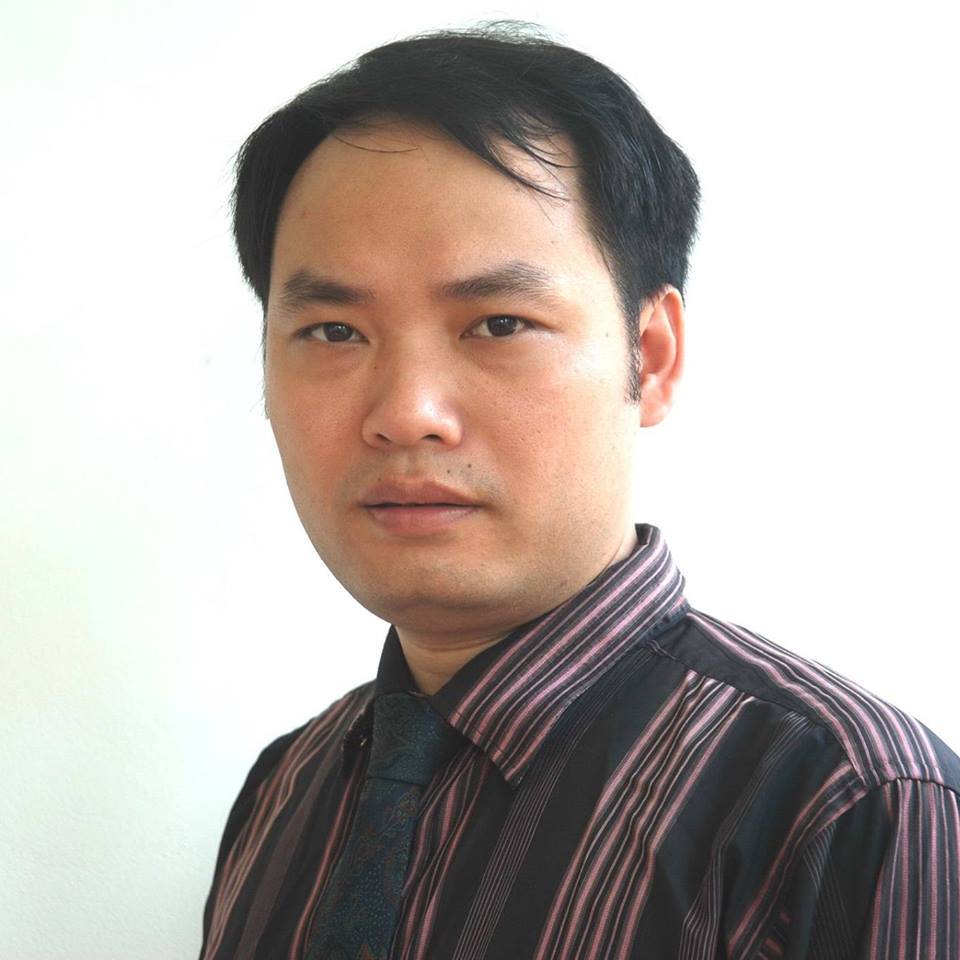 | Dr. BUI MANH HUNG - Expertise: Data analysis, forest inventory, forest growth and structure, - Email: hungbm@vnuf.edu.vn - PhD from Dresden University of Technology, Dresden, Germany. - CV |
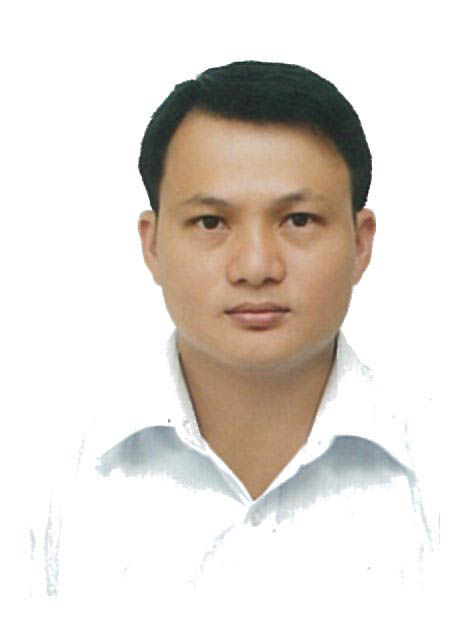 | Assoc.Prof.Dr. BUI XUAN DUNG - Expertise: Environmental management - Email: Buixuandungfuv@gmail.com - Ph.D. from Tokyo University of Agriculture and Technology - CV |
| Prof.Dr. HOANG VAN SAM - Expertise: Plant taxonomy; National parks management; Plant diversity and conservation, biodiversity conservation; Non timber forest products; local people and forest resources. - Email: samhv@vnuf.edu.vn - PhD from Leiden University, the Netherlands. - CV | |

| Dr. CAO THI THU HIEN - Expertise: Biometrics, Forest Inventory, Forest dynamics. - Email: caohien7983@gmail.com - Ph.D from The University of Göttingen, Germany. - CV
|
 | Assoc.Prof.Dr. DO ANH TUAN - Expertise: - Email: dotuan71@yahoo.com - CV |
 | Assoc.Prof.Dr. DONG THANH HAI - Expertise: Biodiversity conservation; Wildlife Management and Conservation ;Conservation Education and Outreach; Community based management; Protected area planning; Protected area Management; Animal behavior and ecology research. - Email: donghaifuv@gmail.com - Ph.D from The Australian National University. - CV |
 | . Assoc.Prof.Dr. LE XUAN PHUONG - Expertise: Wood science and technology, Wood composites, Wood identification, Cleaner production. - Email: phuonglx@vnuf.edu.vn - Ph.D from The University of Tokyo, Japan. - CV |
 | Assoc.Prof.Dr. LE XUAN TRUONG - Expertise: Forest Ecology, Silviculture, REDD+, Rural development, and Natural Resources Management. - Email: truongvfu@gmail.com - Ph.D from Colorado State University. - CV |
 | Assoc.Prof.Dr. NGUYEN HAI HOA - Expertise: Geography, Environmental Management. - Email: nguyenhaihoa2013fuv@gmail.com - Ph.D from The University of Queensland, Australia. - CV |
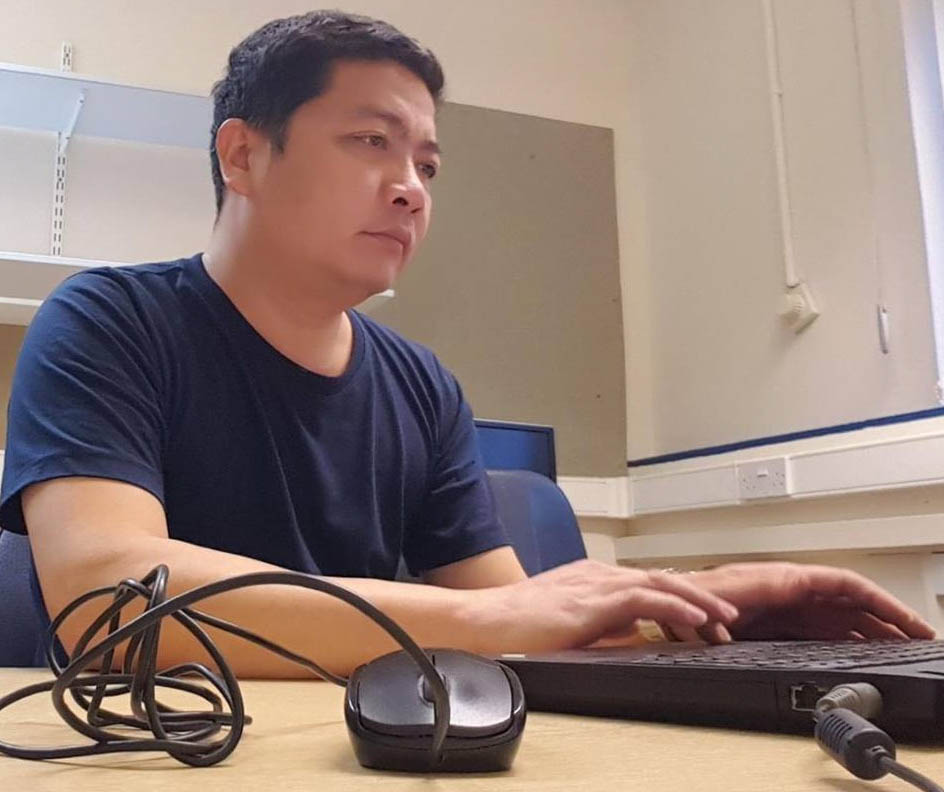 | Dr. NGUYEN HONG HAI - Expertise: Forest ecology, forest dynamics, spatial statistics, Spatial Point Pattern Analysis applied in Plant ecology. - Email: Nguyenhonghai1974@yahoo.com - Ph.D from The University of Göttingen, Germany. - CV |
 | Assoc.Prof.Dr. PHAM MINH TOAI - Expertise: Forest Ecology, Tropical Silviculture and Forestation, Sustainable Forest Management and Forest Certification - Email: toaifuv@gmail.com - Ph.D from Georg-August University of Goettingen, Germany. - CV |
 | Assoc.Prof.Dr. VU QUANG NAM - Expertise: General Biology, Plant Morphology & Anatomy, Botany, Plant Txonomy. - Email: namvq1975@gmail.com - Ph.D at the South China Botanical Garden, CAS (GUCAS). - CV |
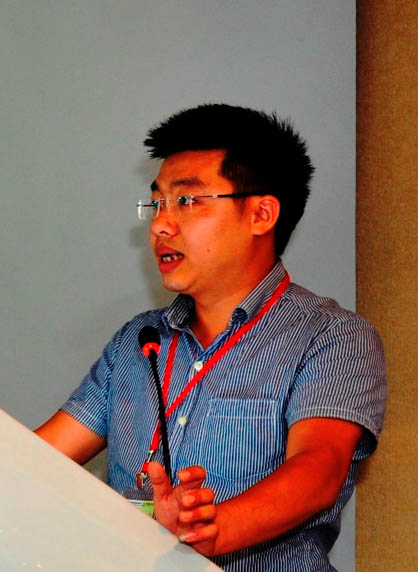 | Assoc.Prof.Dr. VU TIEN THINH - Expertise: biodiversity monitoring, introduction to biostatistics, wildlife identification, conservation biology, wildlife management - Email: vutienthinh@hotmail.com - Ph.D from Colorado State University, USA. - CV |
| Dr. TRAN BINH DA - Expertise: Agronomy, Farming systems, and Agroforestry Model & Landscape Analysis; Plant nursery and Cutting propagation; Analysis of the temporal and spatial interactions of plant species, animal species; Carbon sequestration; mitigation and adaptation to climate change; and Wetlands ecosystems. - Email: tranbinhda@gmail.com - Ph.D. from the University of Queensland, Australia. - CV | |
| Dr. TRAN VIET HA - Expertise: Forest Ecology; Tropical Silviculture; Sustainable Forest Management; Land use planning; Rural development and planning - Email: viethavfu@gmail.com - Ph.D from Georg-August University of Goettingen, Germany. - CV | |
| Dr. NGUYEN VAN THANG - Expertise: History of Philosophy; Leninism - Marxist philosophy; Knowledge economy; Private economy; The basic points in the Socialist-oriented market economy in Vietnam … - Email: thangvfu@gmail.com - Ph.D from Vietnam Academy of Social Sciences. - CV | |
| Dr. PHI DANG SON - Expertise: Impacts of land use/land use changes on runoff and erosion; Contaminated land and remediation; Water resources - Email: sonpd@vfu.edu.au - Doctor of Philosophy from The University of Queensland, Australia. - CV | |
 | Assoc.Prof.Dr. HA VAN HUAN - Expertise: Gene technology; Molecular biology; Application of Biotechnology for Agriculture and Forestry - Email: hvhuanbiotech@gmail.com - Ph.D fromEast China University of Science and Technology (ECUST), Shanghai, P.R. China. - CV |
 | Assoc.Prof.Dr. TRAN THI THU HA - Expertise: Forest policy and economics; Environmental governance; Public relations in natural resource management - Email: hattt@vnuf.edu.vn - PhD from Wageningen University (WUR), the Netherlands. - CV |
| Dr. KHUONG THI THU HUONG - Expertise: Plant physiology - Email: thuhuong.khuong@gmail.com - Ph.D from Aix Marseille University. - CV | |
| Dr. NGUYEN THI THANH AN - Expertise: Forest Inventory and Planning, biometrics, rural development planning, natural resource management; community and protected areas - Email: thanhanfuv@yahoo.com - Ph.D The University of Queensland – Australia. - CV |
Departments of college of Landscape architechture and Urban Greenning
16 tháng 10, 2017
College of Landscape architechture and Urban Greenning
27 tháng 12, 20171. Contact
Office: 2nd floor, T3 Building, VNUF 
Tel: +84 433 232 063
Vice Dean: Assoc. Prof. Dr. Dang Van Ha
Vice Dean: Dr. Pham Hoang Phi
2. Training Programs
Undergraduate:
1. Landscape 
2. Urban Forestry
3. Interior Design
4. Industrial Design
Master degree:
1. Applied Art 
College of forestry biotechnology introduction
27 tháng 12, 20171. Contact
Office: 2nd floor, A3 Building, VNUF 
Tel: +84 433 840 233
Dean: Assoc.Prof.Dr. Bui Van Thang
Email: thangbv@vfu.edu.vn/ thangdhln@gmail.com
Vice Dean: Assoc.Prof.Dr. Nguyen Van Viet
Vice Dean: Assoc.Prof.Dr. Vu Quang Nam
2. Training Programs
Undergraduate:
1. Biotechnology 
Master degree:
1. Biotechnology 
COLLEGE OF FORESTRY BIOTECHNOLOGY
1. GENERAL INFORMATION
The college of Forestry Biotechnology was set up under the Decision No 258/QĐ-BNN-TCCB dated 06/02/2013 of the Minister of Agriculture and Rural Development.
1.1. Function
The College of Forestry Biotechnology (CFB) is one of the units belonging to the Vietnam National University of Forestry with the functions of training; research; consultancy and technology transfer; and national & international cooperation.
1.2. Tasks
- To formulate strategies, planning and plans for programs and projects on science and technology in the field of biotechnology and forestry plant breeding;
- Training undergraduate and postgraduate, human resources in science and technology in the field of biotechnology and argriculture.
- Research on:
o Application of gene technology and molecular genetics in crop breeding; analysis of genetic diversity; identifying genetic relationships; DNA testing; building DNA database of biological resources; diagnosing diseases of plants and animals; creating biological products for agriculture, forestry and environmental protection.
o Application of plant cell technology in propagation and breeding of valuable and rare species.
o Application of microbiological and biochemical technologies for the selection of useful microorganisms for production of biological products in agriculture and forestry, preservation and processing of agricultural and forestry products and environmental protection.
o To study the scientific basis and measures to conserve the forest genetic resources.
o Selection and propagation of forest and medicinal plants using traditional methods and on the basis of biotechnology.
o Establish and manage forest seed groups; seed orchard and gardens; Seed bank and pollen bank for forest plants.
- To formulate national standards, national technical regulations, economic and technical norms on biotechnology and forest seedlings according to the provisions of law.
- Providing scientific and technological services; to transfer the results of scientific and technological research into production.
- Organizing the activities of production, trading, export, import and exchange of products belonging to the college's tasks in service of scientific research, training in biotechnology and plant varieties of forestry in accordance with the law.
- International cooperation; to enter into joint ventures and partnerships with organizations and individuals engaged in scientific research and technological development in the domain of biotechnology and forest plant varieties.
- Manage the use of human resources, funds, assets and other resources assigned in accordance with the law.
- Perform other tasks assigned by the Minister of Agriculture and Rural Development and the president of the Vietnam National University of Forestry.
1.3. Organizational structure
- Board of Directors: 01 Director and 02 Vice Directors
- Specialized units:
• General Department
• Department of Gene and Molecular Genetics
• Department of Cell Technology
• Department of Microbial and Biochemical Technology
• Department of Plant Breeding
• Department of Forest Plant Resources
• Department of Animal Science and Veterinary
• Centrer of Consulting and Technology Transfer
- Other organizations: Communist party division, Labour unions, youth unions, science and training councils.
2. STAFFS
CFB consists of 55 staffs, including 02 Associate Profesors, 10 Doctors, 20 Masters and 23 Bachelors in mayjor of Biology, Biotechnology and Silviculture. Many of them got their degrees from oversea countries.
3. TRAINING AND RESEARCH ACTIVITIES
3.1. Training:
- The staff of the college has actively participated in the activities of teaching theory, practic guidelines, subjects, theses, graduate thesis for the training system in the university, including bachelor and Master programs.
- Coordinate with the departments to complete the master's program in biotechnology; Reviewing the training program, practice internship for subjects managed by the college.
- Coordinate with other departments to develop a high-quality curriculum in biotechnology.
- Completed 02 Animal and Veterinary programs and sucessfully enrolled in 2017- 2018 with almost 100 students.
3.2. Research activities:
- Up to now, CFB has been carried out a hundreds of projects, consisting of different levels such as national, ministry, province and university.
- Transfer the tens of process on breeding technology and in-vitro for outside.
- For publication, every five years CFB publish a hundreds of international, national papers, many of which have high IF.
4. FACILITIES
- CFB is assigned by the university to use the entire area on the second floor, the A3 building with the total area of over 1,000 m2 for working offices and service laboratories, practice, scientific research; and 3 ha of nursery. CFB is also assigned to manage and operate a complete set of equipment for training and research in the fields of Biology, Biote

 Email
Email 



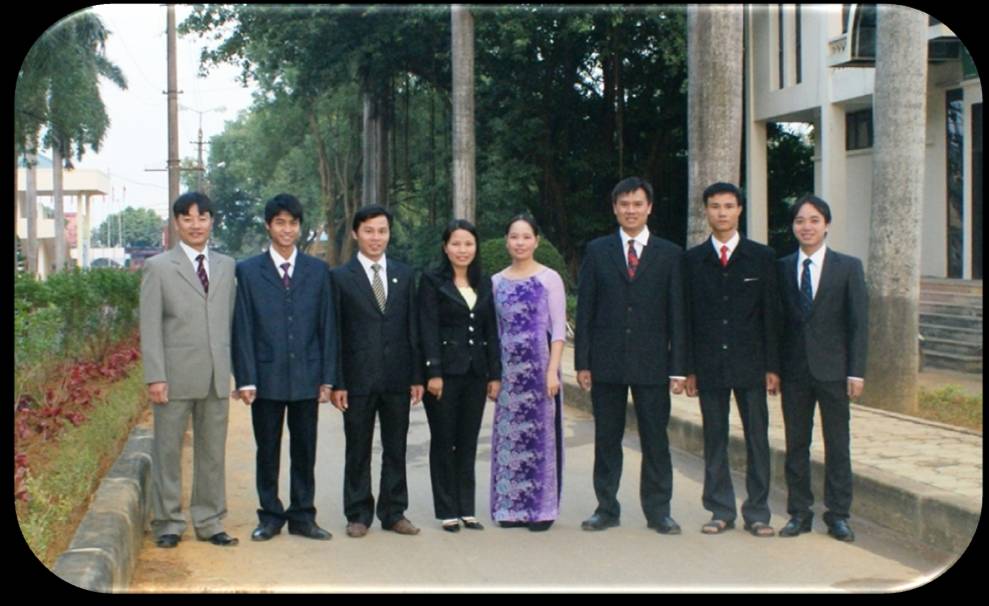
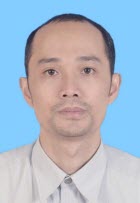
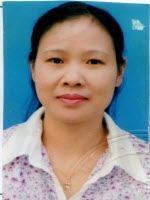

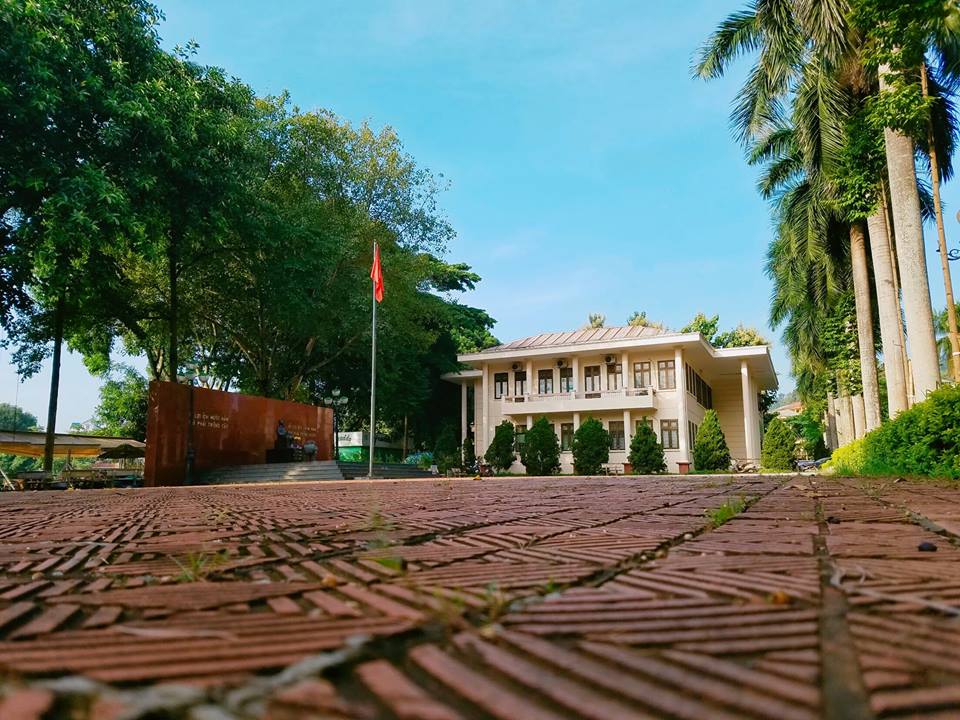
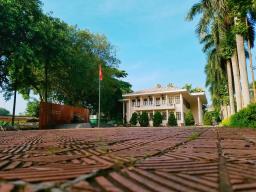
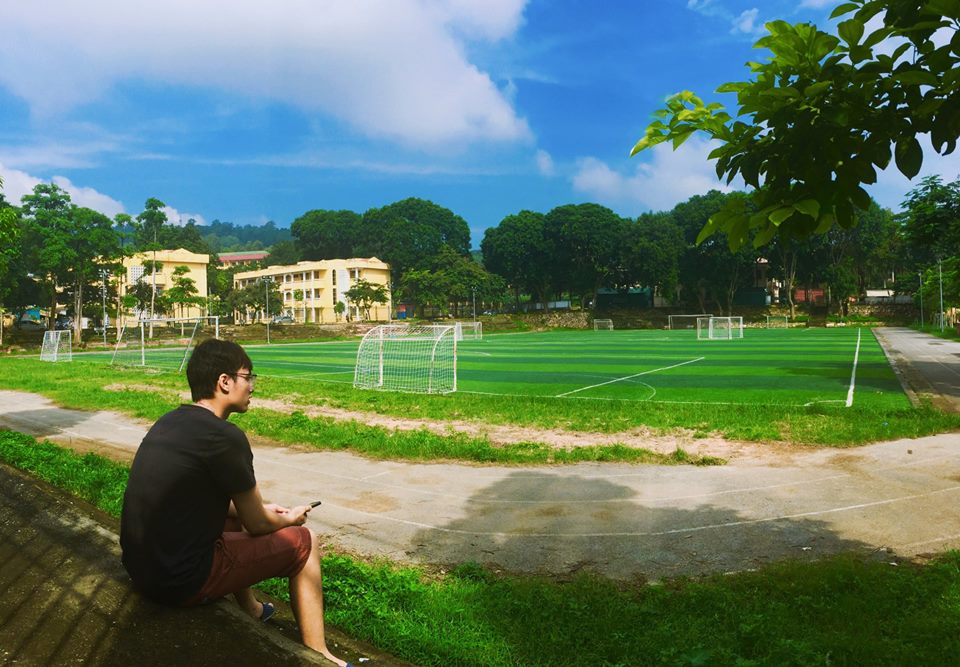
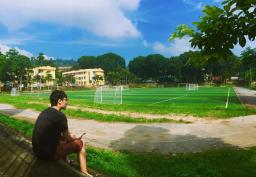
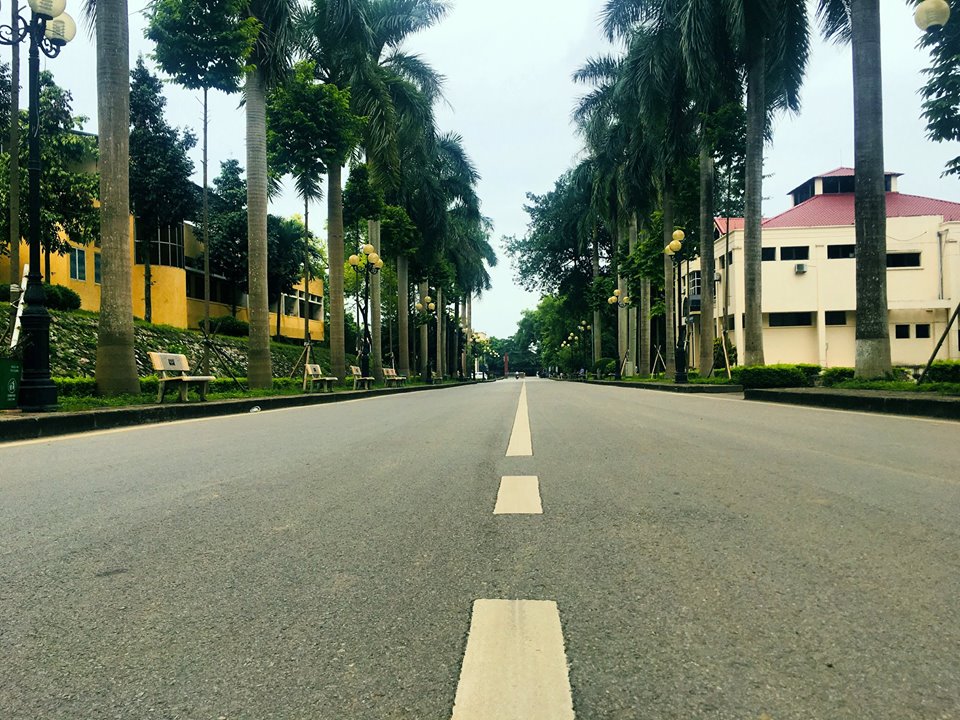
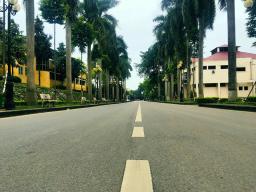
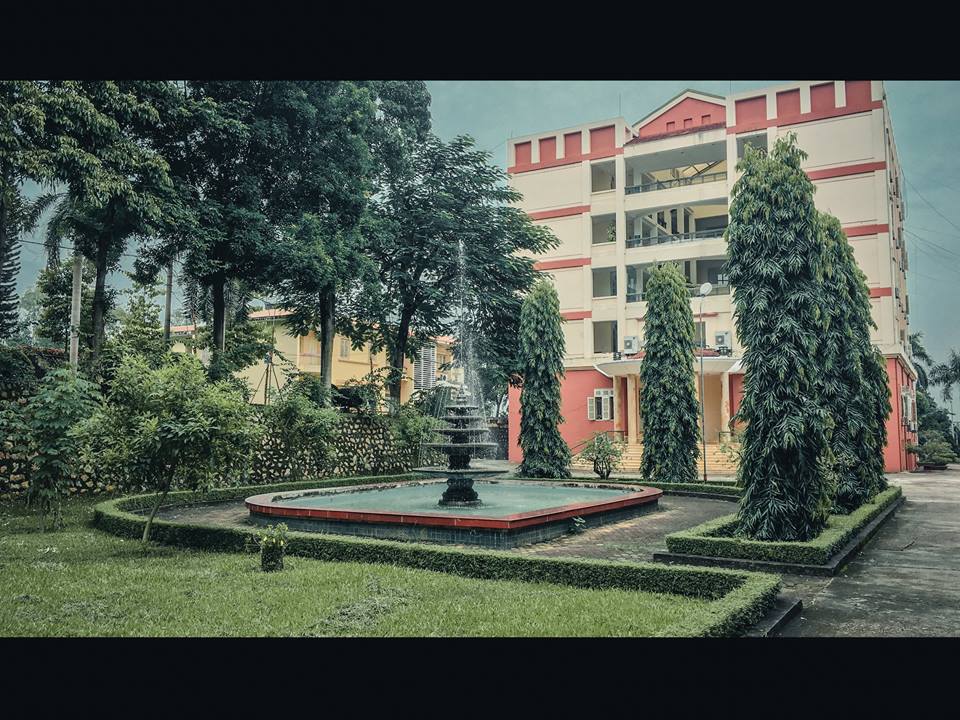
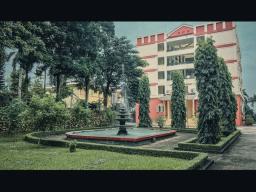


 IMP facebook
IMP facebook How to apply?
How to apply?